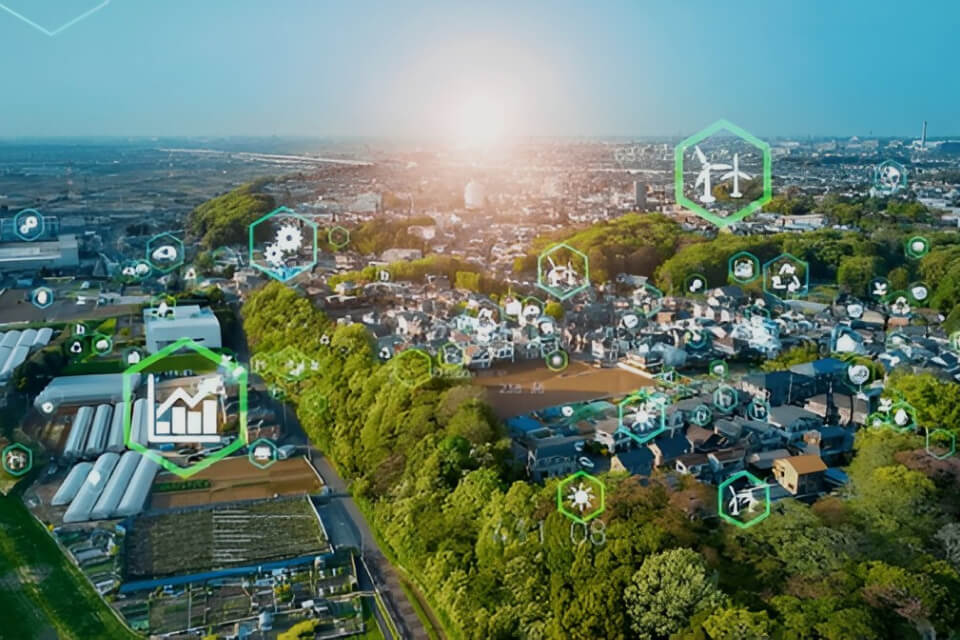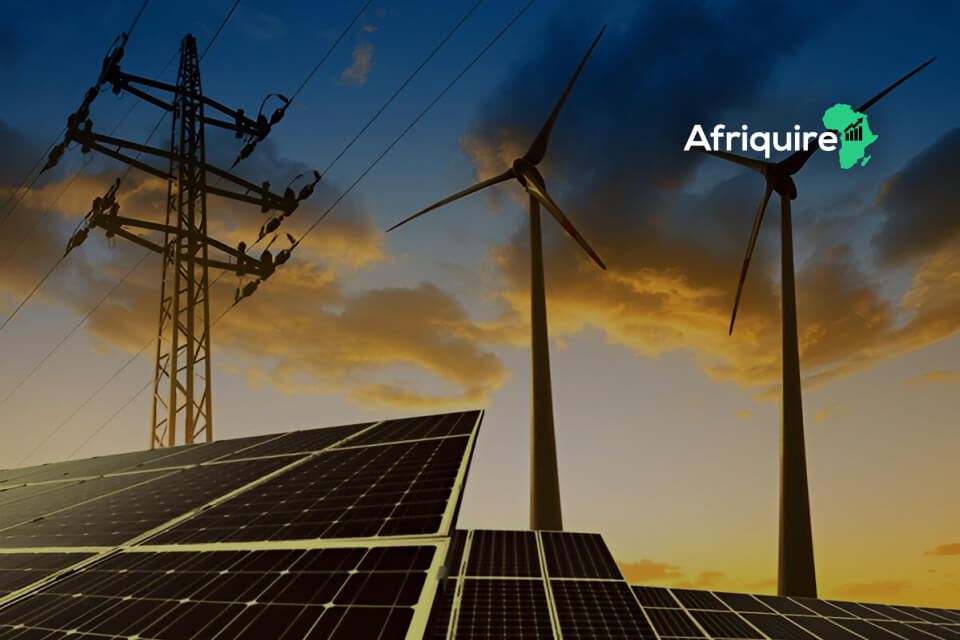Introduction
Renewable energy and CleanTech ventures are becoming the heart of Africa’s sustainable future. With the continent’s vast natural resources, from sunlight to wind and flowing water, there are huge opportunities to build businesses that provide clean, affordable energy if well harnessed. Starting a renewable energy business is not just about making money, it is also about solving real problems. This guide will show you how to begin and why it matters for Africa’s future. This guide explains how to start a renewable energy business and why it matters so much for Africa.
Overview of Renewable Energy and CleanTech Ventures
Renewable energy means producing power from things that do not finish or run out like the sun, wind, or water. CleanTech, also called clean technology, is about using smart ideas and tools to create energy without destroying the environment. For example, businesses can install solar panels in homes, set up wind turbines, or build small hydro stations in villages. Others may design energy-saving products that reduce waste. All these ventures aim to give light, reduce pollution, and cut down carbon that causes climate change.
Why Renewable Energy Matters for Africa’s Future
In many parts of Africa, people still live without steady electricity. Some depend on diesel and kerosene, which are costly and very harmful to the air. Renewable energy is a better way. It can provide light for schools, clinics, and homes, while also giving power to small businesses. This will support economic growth, create jobs, and improve the standard of living. At the same time, it helps Africa fight climate change, which is already affecting farmers and the weather. Therefore, going into renewable energy is not only business, it is also service to society.
Purpose and Scope of This Guide
This guide is written to help young Africans, investors, and innovators who want to enter the renewable energy space. It explains the basics of the industry, the first steps you must take, and the challenges you may face along the way. It also shows the importance of partnership, good business structure, and attracting funds. Whether you dream to start a solar installation company, develop wind projects, or create new technology, this guide will give you a strong foundation.
Opportunities in Renewable Energy and CleanTech
Starting a business in renewable energy is a smart way to help the environment and still build a successful career. In Africa, there is a huge chance in this field because many communities do not have steady electricity. Renewable energy and CleanTech give us ways to provide clean power and create jobs. Here are some important opportunities you can explore.
Off-Grid Solar Solutions
One of the biggest chances in renewable energy is solar power for off-grid areas. Many rural places in Africa are not connected to the national power grid. This means families and schools cannot enjoy light or basic power. Off-grid solar panels help people generate their own electricity. With solar, they save money because they do not need to use costly fuel like petrol and diesel. For example, Ignite Energy Access in Rwanda has given thousands of homes solar power using a pay-as-you-go system.
If you start a business in this sector, you can focus on installing solar panels, offering repair services, or even giving payment plans. This kind of business improves lives while still making profit.
Biofuels and Sustainable Energy Alternatives
Another good opportunity is in biofuels and clean alternatives. Biofuels are made from organic waste such as crops, plants, or leftover materials from farms. These fuels are safer for the environment than fossil fuels. They can be used for cooking, transport, or even to power homes. Africa has enough natural resources to produce biofuels, which also helps reduce cutting down of trees for firewood.
Entrepreneurs can build businesses by creating clean cooking gas or running biomass power stations. This industry also attracts government support, making it easier to grow and expand.
Water Purification and Clean Water Access
Clean water is very important for health, but many communities still lack access. Solar-powered water systems can give cheap and reliable solutions. Starting a business in this area means you can provide safe drinking water with technology like solar water pumps, portable purifiers, or recycling machines. This type of business does not only make money, but it also saves lives and helps meet global development goals. Investors also love to support such ideas because they create social impact.

Finding Funding for Renewable Energy Ventures
Starting a renewable energy business can be very exciting, especially in Africa, where many people need clean power. But like any business, you need money to grow. So, how do you find the right funding?
Accessing Green Funds and Climate Financing
Green funds are special money set aside to support projects that protect the environment or fight climate change. They are perfect for renewable energy businesses because they focus on clean power, like solar, wind, and bioenergy. You can get green funds from organisations such as the Green Climate Fund or the African Development Bank. These organisations sometimes give grants, low-interest loans, or guarantees, which make it easier to get money for your projects. Also, climate financing helps startups that may not have strong collateral or credit history, but that have a positive impact on the environment.
Attracting Impact Investors and Development Partners
Impact investors are people or companies that want to earn money and make a positive social or environmental change at the same time. They are very interested in African renewable energy businesses because these startups bring power to communities and help fight climate change. To attract these investors, you must show how your business creates impact, like reducing carbon emissions or improving access to clean energy. Development partners, such as international NGOs and government agencies, can also help. They provide money and advice. Working with them helps your business get funding and build credibility quickly.
Leveraging Government Incentives and Grants
Many African governments want to support renewable energy through incentives and grants. These incentives may include tax breaks, lower import duties on solar panels and equipment, or special financing programmes. For example, Nigeria offers tax holidays and VAT exemptions for renewable energy companies, while Kenya has grants for mini-grid projects in rural areas. Government support lowers your costs and risks, making it easier to start your business and attract investors. Therefore, always check what incentives your local government offers and apply for the ones that fit your business.
Navigating Regulations and Policies
Starting a renewable energy business can help provide clean power, create jobs, and protect the environment. However, you need to understand the rules and policies before starting, otherwise it can be difficult to succeed. This guide explains the important steps.
Understanding National Energy Policies
The first step in starting a renewable energy business is to understand your country’s energy policies. These policies tell you how the government wants energy, including solar, wind, biomass, or hydropower, to develop. Governments often create plans and targets to encourage clean energy, sometimes offering incentives like tax breaks or funding support.
For example, Nigeria has a Renewable Energy Master Plan to give millions of people access to clean electricity. If you know the government’s priorities, it will be easier to set your business goals and follow the correct approval processes.
Licensing and Permits for Renewable Projects
Next, you need to get the right licenses and permits for your projects. This usually includes permission for construction, environmental checks, and approval to generate electricity from local regulators. Every country has different rules, so you must follow them carefully. You might need to prepare detailed project plans, carry out safety assessments, or even talk to local communities before starting.
For example, South Africa’s National Energy Regulator has strict rules to make sure renewable projects are safe and high quality. Following these rules helps avoid fines or delays.
Regulatory Challenges and How to Overcome Them
Even with supportive policies, starting a renewable energy business can be challenging. You might face slow approvals, unclear regulations, or lots of paperwork. To overcome this, build good relationships with regulators and join industry groups to stay updated. Hiring legal experts who understand energy laws will also help.
Moreover, partnering with experienced local companies can make processes easier and boost your credibility. By knowing the rules well, you can attract investors and grow your business faster.
Developing and Testing Your Business Idea
Before you become successful, you must turn your idea into something real. Knowing how to start a renewable energy business means understanding your market, trying out your ideas, and improving them so they can grow well.
Conducting Market Research and Feasibility Studies
The first step is to understand your market. Market research helps you know who your customers are and what they really need. You can see where the energy supply is weak, check who your competitors are, and discover chances for your business to succeed.
Feasibility studies, on the other hand, tell you if your idea can work in real life and if it makes money. This means looking at costs, technology, and local laws to know if you can start your business. For example, if your area has a lot of sun but very few companies offer cheap solar energy services, that could be your opportunity. Doing good research first saves you time and money and prevents mistakes that can be costly.
Building Prototypes and Pilot Projects
Next, you should make prototypes or small pilot projects. A prototype is a simple version of your product or service to show how it works. A pilot is a small project to test your idea in real life before launching fully.
For instance, if you want to sell solar water pumps, you can install a few in one community first. This way, you see how well they work and what problems come up. Testing your ideas like this helps you improve your product and make sure it is useful and reliable.
Gathering Feedback and Scaling Solutions
After testing, you need to gather feedback from your customers. Ask them what they like, what can be better, and what problems they face. Then, use this information to fix issues and improve your service. Once your product works well and people are happy, you can start scaling your business. Scaling means reaching more customers, adding new areas, or offering more products. With careful planning, good research, and continuous improvement, your renewable energy business can grow and make a positive difference.

Challenges and Practical Solutions
Starting a renewable energy business in Africa is very exciting but it is not always easy. There are some challenges that every entrepreneur must face. Knowing these challenges and finding ways to solve them is very important if you are thinking about how to start a renewable energy business. Here, we look at the main problems and practical solutions for African entrepreneurs in this field.
High Initial Capital Costs
One of the biggest problems is that starting a renewable energy business can be very expensive. Building solar farms, wind turbines, or other clean technologies needs a lot of money at the beginning. For new businesses, this can be too much, especially if they do not have big funds.
But there are solutions. For example, entrepreneurs can develop projects step by step, instead of paying for everything at once. They can also look for venture capital, grants, or funds that are made for renewable energy businesses. Many governments and international organisations also give incentives or support to make starting cheaper. Another idea is to partner with already established companies, which can help share costs and resources.
Limited Infrastructure and Technical Capacity
Another challenge is that in many parts of Africa, the electricity grid is weak or even missing, and it is difficult to find experts in renewable technologies. This makes it harder to install, run, and maintain projects.
To solve this, entrepreneurs can train local people to gain the skills they need. They can also use online platforms to get support and advice from experts far away. Working together with universities or research centres can also help bring new ideas and local knowledge. In areas with weak electricity, small solar mini-grids or off-grid solutions often work better than big projects.
Strategies for Building Strong Partnerships
Strong partnerships are very important for success. Working with government agencies helps to understand the rules and regulations. Partnering with banks or investors can give money and business advice. Collaborating with communities ensures projects meet local needs and get support. Venture capitalists can also help with funding, business connections, and advice to grow the business.
Long-term relationships based on trust are always more valuable than quick deals. Joining networks of clean energy businesses or associations also helps entrepreneurs find funding and stay informed.
Programs and Resources Available
Starting a renewable energy business in Africa can be very exciting and rewarding. This is because many communities still need access to electricity, and clean energy solutions like solar and wind power can make a big difference. However, knowing where to get help makes it much easier to start and grow your business. Luckily, there are several programmes and resources that can guide you.
NGO and International Clean Energy Support Programs
Many international organisations and NGOs support renewable energy projects in Africa. For example, the United Nations Development Programme (UNDP) runs programmes that provide grants and technical support to startups working on clean energy. Likewise, the African Development Bank offers funding for renewable energy projects.
These programmes usually include low-interest loans, training, and access to networks. By joining these initiatives, you can increase your chances of getting funding and learning from experts, which can help your business grow faster.
Accelerators and Incubators for Renewable Startups
Accelerators and incubators are great places for new renewable energy businesses. They offer structured programmes that include mentorship, coaching, and sometimes funding. For example, Nigeria’s Green Tech Accelerator helps startups improve their business models and connect with investors. In Kenya, the Climate Innovation Centre supports CleanTech entrepreneurs with access to markets and finance.
Being part of these programmes gives you a community of people who are learning too, which helps you understand how to work with investors and build your business correctly.
Training, Mentorship, and Knowledge-Sharing Platforms
There are also platforms that offer training and mentorship for renewable energy entrepreneurs. Online platforms like EnergyLab and Clean Energy Trust share guides, best practices, and real-life examples. Local universities and business hubs also organise workshops where you can learn about the latest trends in CleanTech and funding strategies.
Joining these groups helps you gain skills and avoid common mistakes that many new entrepreneurs make.

Future Outlook of Renewable Energy in Africa
Growing Demand for Sustainable Solutions
Renewable energy is becoming very important in Africa. As more people need electricity every day, clean energy is needed more than ever. Many communities still do not have steady power, so using solar, wind, hydro, and other renewable sources is a smart way to help.
By starting a renewable energy business, you are not only making money, but also helping the environment. This demand is a big chance for young entrepreneurs who want to make a difference while building a successful business.
Role of Technology and Innovation in CleanTech
Technology is changing how renewable energy works in Africa. For example, solar panels are now cheaper, wind turbines are more efficient, and batteries can store more power. Because of this, building renewable energy projects is easier than before.
Also, new business models, like pay-as-you-go solar systems, allow even low-income families to use clean energy. Digital payments, remote monitoring, and local solar equipment production are growing fast. These new ideas reduce costs, make energy more reliable, and bring clean power to both cities and villages.
Opportunities for Local and Global Entrepreneurs
Both African and international entrepreneurs can find great opportunities in renewable energy. Local business owners can start solar installation services, make equipment, or set up small grids for villages. International investors can work with local companies or fund big renewable projects. Governments also give support through incentives and partnerships. Learning how to get venture capital and working with investors can help raise the money needed to grow your business.
The renewable energy sector in Africa is promising. It creates jobs, improves access to electricity, and protects the environment. Venture capital helps startups grow faster and solve energy problems. Therefore, for anyone who wants to start a renewable energy business, now is a very good time to enter the market and make a real difference.
Frequently Asked Questions (FAQs)
1. What is a renewable energy business?
A renewable energy business is one that produces or supplies energy from natural sources that never run out, like sunshine, wind, or water.
2. How much money do I need to start a renewable energy business?
The amount varies, but you can start small with solar panel installation or energy audits, then grow as you get more clients and funding.
3. Can I start a renewable energy business without technical knowledge?
You can, but it’s helpful to partner with experts or get training to understand the technology and regulations properly.
4. What are popular types of renewable energy businesses?
Solar panel installation, wind turbine servicing, biomass energy production, and energy efficiency consulting are common options.
5. Do I need special permits to start this business?
Yes, you need to register your business and get the correct licenses or permits to operate legally in your area.
Conclusion
Knowing how to start a renewable energy business can open opportunities to make money while helping the environment. With Africa’s rich natural resources and growing energy needs, starting such a business is not just smart but also impactful. By creating a solid business plan, understanding financing options, and following legal steps, you can build a successful company.
Moreover, knowing how to build relationships with investors and how to structure your deals will help you grow faster and overcome challenges. The focus on renewable energy today means your business can contribute significantly to Africa’s future green economy and bring lasting benefits to your community and beyond. So, why wait? Start your journey now and be part of Africa’s clean energy future.



